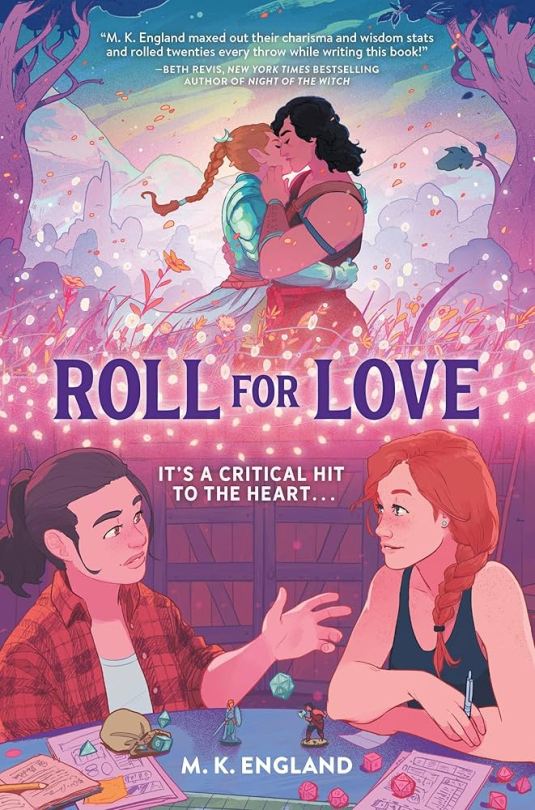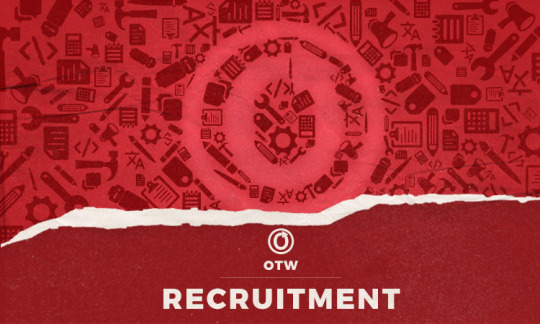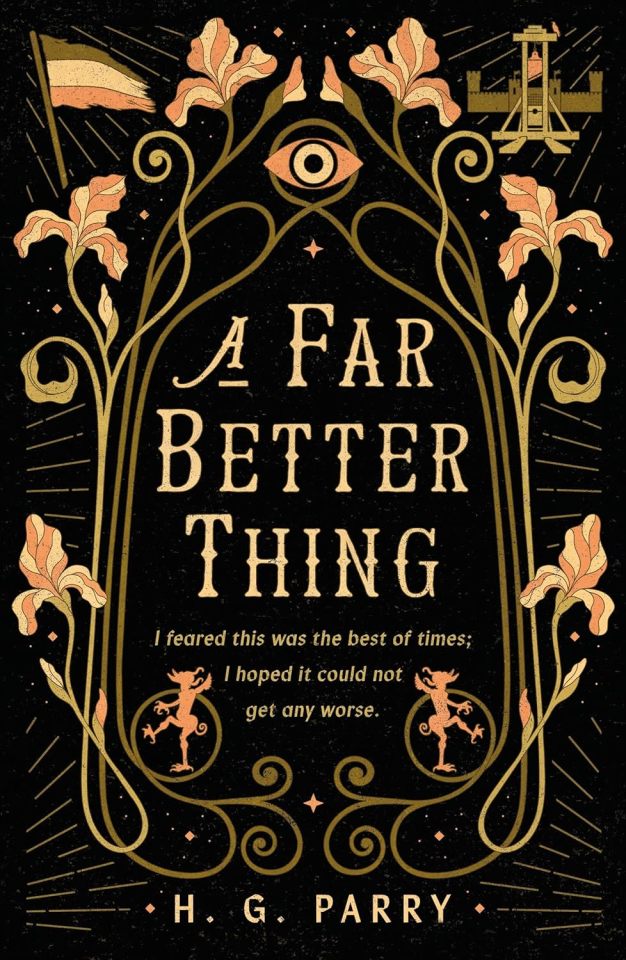Libraries are the last free bastion of true democracy. . None of us are free until all of us are free. . When the privileged can avoid prison, laws become threats, and the police become an occupying army. . Education is elevation. . Read. Resist. Rise Up.
Don't wanna be here? Send us removal request.
Text
Roll for Love by M. K. England

Harper’s senior year is starting out rough. Her grandfather (and woodworking inspiration) has died, and her mom, who is barely speaking to her, has moved them out of Portland, away from all her friends, and into her grandfather’s old farmhouse.
Then Harper runs into Ollie, the neighbor girl she had a crush on when they were younger, who is gorgeous, bi, and has a group of queer Dungeons-&-Dragons-playing friends who want to use Harper’s barn for sessions, things start to look up.
With scenes that jump between senior year and the world of the game, months go by, and the barn becomes a haven for the group to explore aspects of life they struggle with.
Like Ollie and coming out to her family.
Or Brooks and his home life.
Or Harper and her feelings for Ollie.
----------------------------------------------------------
The way I would have absolutely gone feral as a kid if this book existed, I can't even. It's so cute. I would maybe even call it a cozy book. There are some tough subjects but they are mostly off page and the overall vibe is hopeful and happy, something queer kids need to read more of.
4.5/5 stars.
The cover is gorgeous. It has kids who don't want to go to college and are genuinely planning what they want to do with their lives to be successful without it. Carpentry and child care are incredibly rewarding careers that don't require a college degree and I'm so proud (as a person with a master's degree) that kids have rep for other post-high-school life choices.
I really thought after my bachelors I would be letting that piece of paper collect dust since there weren't jobs out there that didn't require committed to a 4+ year long grad school stint and I'm glad I was able to become a librarian and make that work for me, but that's not the case for many people in my generation.
The debt is only worth it if it's what you're passionate about and the jobs for it exist, folks.
ANYWAY, that aside, every thing about this book is a safe space about safe spaces. Highly recommend.
0 notes
Text
A Rainbow of Queer Books for Pride 2025: Turquoise



HAPPY PRIDE 2025! For Pride this year, we’re changing up our usual rec lists. Instead of doing books with specific identities or themes, we’re focused this time on cover color! Throughout the month of June, we’ll be doing 8 rec lists, each with covers inspired by one of the colors of the original Gilbert Baker Pride Flag. We drew a little additional inspiration from the meaning behind the color and why it was included in the original LGBTQIA+ flag (in this case, turquoise = magic), but we prioritized color over meaning. The contributors to this list are: May Barros, Rhosyn Goodfellow, Linnea Peterson, Tris Lawrence, Sebastian Marie, Shannon, Rascal Hartley, and Nina Waters.
Journey Home by May Barros
Aristotle and Dante Dive Into the Waters of the World by Benjamin Alire Sáenz
The Salt in the Sea by J.D. Rivers
Our Dreams at Dusk by Yuhki Kamatani
Mirrored Heavens by Rebecca Roanhorse
Like Real People Do by E.L. Massey
Like You’ve Nothing Left to Prove by E.L. Massey
Deadendia: The Broken Halo by Hamish Steele
The Pairing by Casey McQuiston
A Lady for a Duke by Alexis Hall
Celestial Monsters by Aiden Thomas
Running Close to the Wind by Alexandra Rowland
Submerged by Vita Ayala
Artifice & Access: A Disability in Fantasy Anthology by Ella T. Holmes
In Other Lands by Sarah Rees Brennan
This Is How You Lose the Time War by Amal El-Mohtar & Max Gladstone
Twilight Out of Focus by Jyanome
Thousand Autumns by Meng Xi Shi
If It Makes You Happy by Claire Kann
Leah on the Offbeat by Becky Albertalli
Many Drops Make a Stream by Adrian Harley
The Wicked Bargain by Gabe Cole Novoa
Jo: An Adaptation of Little Women (Sort Of) by Kathleen Gros
Before I Let Go by Marieke Nijkamp
Find these and many other queer books on our Goodreads book shelf or buy them through the Duck Prints Press Bookshop.org affiliate page.
Join Book Lover’s Discord server to chat with us about books, fandom, and more!
37 notes
·
View notes
Text
I work with older people on the computer (anyone actually and some young people specifically because Google has monopolized their early computer education so they need shown how to use Word and Excel for work) and this is true. People psych themselves up because they feel stupid or they don't handle being watched well. You have to create a patient environment. Spend the first couple minutes with your mum listening to why she wants to do the thing and what the issue is. Then physically sit beside or at an angle to her (corner of a table is best, idk why), and suddenly y'all will be on the same page. Learning requires classroom management and even though we don't think that showing people our own age or older is teaching, THEY DO.
why does my mother suddenly fail kindergarten whenever she tries to do anything on the computer
122K notes
·
View notes
Text
The OTW is Recruiting for Tag Wrangling Volunteer, Tag Wrangling Volunteer (Indonesian), Tag Wrangling Volunteer (Russian), Internal Complaint and Conflict Resolution Volunteer, Support Volunteer and Support Volunteer (Chinese)

Would you like to wrangle tags? Can you read and translate from Indonesian or Russian to English? Would you like to help your fellow fans use AO3? Are you fluent in Chinese? The OTW is recruiting! Learn more at: https://otw-news.org/2p8su59h.
1K notes
·
View notes
Text
The OTW is Recruiting for Tag Wrangling Volunteer, Tag Wrangling Volunteer (Indonesian), Tag Wrangling Volunteer (Russian), Internal Complaint and Conflict Resolution Volunteer, Support Volunteer and Support Volunteer (Chinese)

Would you like to wrangle tags? Can you read and translate from Indonesian or Russian to English? Would you like to help your fellow fans use AO3? Are you fluent in Chinese? The OTW is recruiting! Learn more at: https://otw-news.org/2p8su59h.
1K notes
·
View notes
Text
A Far Better Thing by H. G. Parry

A beautifully-spun retelling of Dicken's classic A Tale of Two Cities with a twist of fate and a dash of fairy magic. Sydney Carton is the human servant of fairy masters and has been ever since he was swapped for a changeling as a child. A coincidence that's not a coincidence at all presents itself when he meets and saves the life of his own changeling, Charles Darney, and begins to plot revenge against the fairy that brought them together and fairy realm itself. Would that all fantasy stories were this tragic and compelling. Carton is incredibly relatable even while he tries to convince himself and everyone around him, readers included, that he's just a drunken ne'er-do-well, and the plot, while familiar, is cleverly reinvented in a way that feels entirely new. Fans of classic fairy stories and doomed protagonists will appreciate Parry's latest novel.
You know I didn't realize that this was a remix of A Tale of Two Cities for until the courtroom scene? I'm traveling at the moment and I was reading on the train, with my mind accepting things as they were happening (and they call Sydney "Memory" a lot), so it didn't quite click right away. But this was a solid reinterpretation. I liked it a lot more than some of The Great Gatsby reinterpretations I've read. It stands well on its own and could be read and enjoyed by anyone who enjoys fairy stories, not just Dicken's fans.
#A Far Better Thing#book review#Spoilers aren't really there below the line but I put them there anyway
0 notes
Text
The Witch Roads by Kate Elliot

This is the first book in a duology. This part is quite good and I'm invested in reading the sequel. Deputy courier El has been tasked with guiding a crew of imperial wardens and their prince across dangerous terrain, but her job gets infinitely more complicated when the prince is possessed by an ancient spirit and El is the only one who knows.
There is a general plot in this first book but it's very much a Fellowship of the Ring type situation. Lots of set up for the overarching story and less focus on ending this book with a full arc. Witch roads, mutating fungal spores, and a rigid caste system make the world come to life and several characters are set up for interesting further development so I'm hopeful that this series will be very good indeed.
A great read if you're looking for a tolken-esque story with creative world-building and lore.
4.5/5 stars
Content warning for implied and referenced rape and sexual assault of a minor, transphobia, and body horror.
If you liked Swordheart by T. Kingfisher, I would give this one a go. It's similar in theme but with better world-building and more fantasy elements.
If the haunt doesn't make a reappearance in book two, I will rebel.
That is all.
1 note
·
View note
Text

Oh I'm sorry C: you've only got 6GB free? Only six fucking gig? We used to boot the OS off fucking floppy drives but I'm so so sorry that six entire gigabytes of free space isn't enough for you you poor starving thing. You've been experiencing worse and worse memory issues for months and now you're freezing and crashing every few minutes because why, you just can't make 6 gig work? Grow the fuck up.
5K notes
·
View notes
Text
Bury Our Bones in the Midnight Soil by V. E. Schwab

A vampire epic told over two separate timelines starting with Maria, a woman in Spain in the 1500s who, trapped in her tragic life, is offered a way out, and Alice, a modern college student in Boston, who's one night stand does not go as planned, Schwab's newest title is giving us some much needed representation in this new era of the gothic vampire. This book is great for fans of Carmilla who want more sapphic vampires, and anyone who loves morally depraved POV characters.
The vampire lore is mostly standard but with a few twists that I personally really enjoyed. Aside from suffering from a case of too many flashbacks, the pacing was well-done, with Schwab able to weave the timelines together in a narratively satisfying way, and an ending that, while open, comes full circle for our characters.
Content warnings for marital sexual assault, dubious consent, coercion, and other forms of manipulation.
3/5 stars
Guys, this sure was a story. If you like toxic tragic lesbians, you might like this one. I say might because I love me some toxic tragic lesbians and for some reason this just didn't hit with me.
Part of that was I wasn't interested really in either of the two main time periods: present day Boston and yee olden times Spain/Venice/London. What really pulled this nat 12 down for me was that I couldn't get into the yee olden times marital rape revenge fantasy turned hunting spree nor all of Alice's many many flashbacks.
It felt at times the narrative took precedence over character complexity (not so much with Sabine as the others even though Sabine still did feel like a knock-off Anne Rice character), and one of my favorite aspects of vampire horror/gothic is the use of narrative to give overwhelming complexity to the characters.
Still, it's not a difficult read and if you want characters that are solidly girl-loving girls, this might be what you're looking for in a vampire book. Anyway, sorry the spoilers are a bit of a downer. Maybe I hyped this up to much in my mind based on reviews I was seeing and did myself a disservice though I can see the broader appeal beyond myself. I don't know. It was just pretty mid.
0 notes
Text
Fully watched that Superman trailer and thought the engineer was Mercy.
0 notes
Photo

25 years ago an unknown Chinese protester stood in front of a tank in defiance of the government. No one knows the identity of the man but he was given the nick name “Tank Man”. This is one of the most iconic photographs of the century.
113K notes
·
View notes
Text
Messy Perfect by Tanya Boteju

Boteju’s latest queer coming-of-age story about what it's like to be both queer and Christian and the vulnerability that comes with that.
Cassie Perera is a straight-A student and textbook overachiever, volunteers at her church on Sundays, attends a Catholic school, and somehow manages to live up to her parents' expectations of her.
And, well, she’s a lesbian. Not that she can tell anyone.
She’s known ever since she outed her childhood best friend, Ben, in an attempt to hide her own identity. And now Ben is back and Cassie has to find a way to make it up to him.
Just like everything in her life, if Cassie adds it to her spreadsheet of to-do items, it'll definitely happen. And she won't have to mention the messy queer part of her that doesn't fit nicely inside her rows and columns.
After a chance encounter with nearby school's GSA, Cassie gets involved, as an ally, and eventually ropes Ben into the group as well. Things go well, for a while.
There are some useful examples of community organizing (good and bad) in here that are gonna be helpful for queer teens today.
It's cute, sweet, and a good look into forced conformity (even when no one explicitly says so).
3.5/5 stars.
Content warnings for homophobia.
0 notes
Text
The meritocracy to eugenics pipeline

I'm on a 20+ city book tour for my new novel PICKS AND SHOVELS. Catch me in PDX on Jun 20 at BARNES AND NOBLE with BUNNIE HUANG. After that, it's LONDON (Jul 1) and MANCHESTER (Jul 2).

It's kinda weird how, the more oligarchic our society gets, the more racist it gets. Why is the rise of billionaires attended by a revival of discredited eugenic ideas, dressed up in modern euphemisms like "race realism" and "human diversity"?
I think the answer lies in JK Galbraith's observation that "The modern conservative is engaged in one of man's oldest exercises in moral philosophy; that is, the search for a superior moral justification for selfishness."
The theory of markets goes like this: a market is a giant computer that is always crunching all kinds of "signals" about what people want and how much they want it, and which companies and individuals are most suited to different roles within the system. The laissez-faire proposition is that if we just resist the temptation to futz with the computer (to "distort the market"), it will select the best person for each position: workers, consumers, and, of course, "capital allocators" who decide where the money goes and thus what gets made.
The vast, distributed market computer is said to be superior to any kind of "central planning" because it can integrate new facts quickly and adjust production to suit varying needs. Let rents rise too high and the computer will trigger the subroutine that brings "self-interested" ("greedy") people into the market to build more housing and get a share of those sky-high rents, "coming back into equilibrium." But allow a bureaucracy to gum up the computer with a bunch of rules about how that housing should be built and the "lure new homebuilders" program will crash. Likewise, if the government steps in to cap the price of rents, the "price signal" will be silenced and that "new homebuilders" program won't even be triggered.
There's some logic to this. There are plenty of good things that market actors do that are motivated by self-interest rather than altruism. When Google founders Larry Page and Sergey Brin developed their Pagerank algorithm and revolutionized internet search, they weren't just solving a cool computer science problem – they were hoping to get rich.
But here's the thing: if you let Larry and Sergey tap the capital markets – if they can put on a convincing show for the "capital allocators" – then the market will happily supply them with the billions they need to buy and neutralize their competitors, to create barriers to entry for superior search engines, and become the "central planners" that market theory so deplores. If your business can't get any market oxygen, if no audience ever discovers your creative endeavors, does it matter if the central planner who decided you don't deserve a chance is elected or nominated by "the market"?
Here's how self-proclaimed market enthusiasts answer that question: all Larry and Sergey are doing here is another form of "capital allocation." They're allocating attention, deciding what can and can't be seen, in just the same way that a investor decides what will and won't be funded. If an investor doesn't fund promising projects, then some other investor will come along, fund them, get rich, and poach the funds that were once given to less-successful rivals. In the same way, if Google allocates attention badly, then someone will start a better search engine that's better at allocating attention, and we will switch to that new search engine, and Google will fail.
Again, this sounds reasonable, but a little scrutiny reveals it to be circular reasoning. Google has dominated search for a quarter of a century now. It has a 90% market share. According to the theory of self-correcting markets, this means that Google is very good at allocating our attention. What's more, if it feels like Google actually sucks at this – like Google's search-results are garbage – that doesn't mean Google it bad at search. It doesn't mean that Google is sacrificing quality to improve its bottom line (say, by scaling back on anti-spam spending, or by increasing the load of ads on a search results page).
It just means that doing better than Google is impossible. You can tell it's impossible, because it hasn't happened.
QED.
Google wasn't the first search engine, and it would be weird if it were the last. The internet and the world have changed a lot and the special skills, organizational structures and leadership that Google assembled to address the internet of the 2000s and the 2010s is unlikely to be the absolute perfect mix for the 2020s. And history teaches us that the kinds of people who can assemble thee skills, structures and leaders to succeed in one era are unlikely to be able to change over to the ideal mix for the next era.
Interpreting the persistent fact of Google's 90% market-share despite its plummeting quality as evidence of Google's excellence requires an incredible act of mental gymnastics. Rather than accepting the proposition that Google both dominates and sucks because it is excellent, we should at least consider the possibility that Google dominates while sucking because it cheats. And hey, wouldn't you know it, three federal courts have found Google to be a monopolist in three different ways in just a year.
Now, the market trufans will tell you that these judges who called Google a cheater are just futzers who can't keep their fingers off the beautiful, flawless market computer. By dragging Google into court, forcing its executives to answer impertinent questions, and publishing their emails, the court system is "distorting the market." Google is the best, because it is the biggest, and once it stops being the best, it will be toppled.
This makes perfect sense to people who buy the underlying logic of market-as-computer. For the rest of us, it strains credulity.
Now, think for a minute of the people who got rich off of Google. You have the founders – like Sergey Brin, who arrived in America as a penniless refugee and is now one of the richest people in the history of the human species. He got his fortune by building something that billions of us used trillions of times (maybe even quadrillions of times) – the greatest search engine the world had ever seen.
Brin isn't the only person who got rich off Google, of course. There are plenty of Googlers who performed different kinds of labor – coding, sure, but also accountancy, HR, graphic design, even catering in the company's famous cafeterias – who became "post-economic" (a euphemism for "so rich they don't ever need to think about money ever again") thanks to their role in Google's success.
There's a pretty good argument to be made that these people "earned" their money, in the sense that they did a job and that job generated some money and they took it home. We can argue about whether the share of the profits that went to different people was fair, or whether the people whose spending generated that profit got a good deal, or whether the product itself was good or ethical. But what is inarguable is that this was money that people got for doing something.
Then there's Google's investors. They made a lot of money, especially the early investors. Again, we can argue about whether investors should be rewarded for speculation, but there's no question that the investors in Google took a risk and got something back. They could have lost it all. In some meaningful sense, they made a good choice and were rewarded for it.
But now let's think about the next generation. The odds that these billionaires, centimillionaires and decimillionaires will spawn the next generation of 1%ers, 0.1%ers, and 0.0001%ers are very high. Right now, in America, the biggest predictor of being rich is having rich parents. Every billionaire on the Forbes under-30 list inherited their wealth:
https://ca.finance.yahoo.com/news/forbes-billionaires-under-30-inherited-203930435.html
The wealthy have created a system of dynastic wealth that puts the aristocratic method of primogenitor in the shade. Every scion of every one-percenter can have their own fortune and start their own dynasty, without lifting a finger. Their sole job is to sign the paperwork put before them by "wealth managers":
https://pluralistic.net/2021/06/19/dynastic-wealth/#caste
Yes, it's true that some of the very richest people on Earth got their money by investing, rather than inheriting it. Bill Gates's investment income growth exceeds even the growth of the world's richest woman, L'Oreal heiress Liliane Bettencourt, who never did anything of note apart from emerging from an extremely lucky orifice and then simply accruing:
https://memex.craphound.com/2014/06/24/thomas-pikettys-capital-in-the-21st-century/
But Bill Gates's wealth accumulation from investing exceeds the wealth he accumulated by founding and running the most successful company in history (at the time). Doing work never pays as much as allocating capital. And Gates's children? They can assume a Bettencourtian posture on a divan, mouths yawning wide for the passage of peeled grapes, and their fortunes will grow still larger. Same goes for their children, and their children's children.
Capitalism's self-mythologizing insists that the invisible hand owes no allegiance to yesterday's champions. The mere fact that the market rewarded you for allocating capital wisely during your tenure does not entitle your offspring to continue to allocate wealth in the years and centuries to come – not unless they, too, are capital allocators of such supremacy that they are superior to everyone born hereafter and will make the decisions that make the whole world better off.
Because that's the justification for inequality: that the market relentlessly seeks out the people with the skill and foresight to do things and invest in things that improve the world for all of us. If we interrupt that market process with regulations, taxes, or other "distorting" factors, then the market's quest for the right person for the right job will be thwarted and all of us will end up poorer. If we want the benefits of the invisible hand, we must not jostle the invisible elbow!
That's the justification for abolishing welfare, public education, public health, affirmative action, DEI, and any other programs that redistribute wealth to the least among us. If we get in the way of the market's selection process, we'll elevate incompetents to roles of power and importance and they will bungle those roles in ways that hurt us all. As Boris Johnson put it: "the harder you shake the pack the easier it will be for [big] cornflakes to get to the top":
https://www.theguardian.com/politics/2013/nov/28/boris-johnson-iq-intelligence-gordon-gekko
Which leaves the servants and defenders of the invisible hand with a rather awkward question: how is it that today, capital allocation is a hereditary role? We used to have the idea that fitness to allocate capital – that is, to govern the economy and the lives of all of the rest of us – was a situational matter. The rule was "shirtsleeves to shirtsleeves in three generations": "The first generation makes it, the second generation spends it, and the third generation blows it."
That's the lesson of the rags to riches story*: that out there, amongst the teeming grubby billions, lurks untold genius, waiting to be anointed by the market and turned loose to make us all better off.
In America, these stories are sometimes called "Horatio Alger" stories, after the writer who penned endless millionaire-pleasing fables about urchins who were adopted by wealthy older men who saw their promise and raised them to be captains of industry. However, in real life, Horatio Alger was a pedophile who adopted young boys and raped them:
https://newenglandhistoricalsociety.com/horatio-alger-hundred-year-old-secret/
Perhaps your life was saved by a surgeon who came from humble origins but made it through med school courtesy of Pell Grants. Perhaps you thrilled to a novel or a film made by an artist from a working class family who got their break through an NEA grant. Maybe the software you rely on every day, or the game that fills your evenings, was created by someone who learned their coding skills at a public library or publicly funded after-school program.
The presence among us of people who achieved social mobility and made our lives better is evidence that people are being born every moment with something to contribute that is markedly different, and higher in social status, than the role their parents played. Even if you stipulate that the person who cleans your toilet has been correctly sorted into a toilet-cleaning job by the invisible hand, it's clear that the invisible hand would prefer that at least some of those toilet-cleaners' kids should do something else for a living.
And yet, wealth remains stubbornly hereditary. Our capital allocators – who, during the post-war, post-New Deal era were often drawn from working families – are now increasingly, relentlessly born to that role.
For the wealthy, this is the origin of the meritocracy to eugenics pipeline. If power and privilege are inherited – and they are, ever moreso every day – then either we live in an extremely unfair society in which the privileged and the powerful have rigged the game…or the invisible hand has created a subspecies of thoroughbred humans who were literally born to rule.
This is the thesis of the ultra-rich, the moral justification for rigging the system so that their failsons and faildaughters will give rise to faildestinies of failgrandkids and failgreat-grandkids, whose emergence from history's luckiest orifices guarantees them a lifelong tenure ordering other people around. It's the justification for some people being born to own the places where the rest of us live, and the rest of us paying them half our salaries just so we don't end up sleeping on the sidewalk.
"Hereditary meritocracy" is just a polite way of saying "eugenics." It starts from the premise of the infallible invisible hand and then attributes all inequality in society to the hand's perfect judgment, its genetic insight in picking the best people for the best jobs. If people of one race are consistently on top of the pile, that's the market telling you something about their genomes. If men consistently fare better in the economy than women, the invisible hand is trying to say something about the Y chromosome for anyone with ears to hear.
Capitalism's winners have always needed "a superior moral justification for selfishness," a discreet varnish to shine up the old divine right of kings. Think of the millionaire who created a "Nobel Prize sperm-bank" (and then fraudulently fathered hundreds of children because he couldn't find any Nobelists willing to make a deposit):
https://memex.craphound.com/2006/09/07/nobel-prize-sperm-bank-human-tragicomedy-about-eugenics/
Or the billionaire founder of Telegram who has fathered over 100 children in a bid to pass on his "superior genes":
https://www.cnn.com/2024/08/26/tech/pavel-durov-telegram-profile-intl
Think of Trump and his endless boasting about his "good blood" and praise for the "bloodlines" of Henry Ford and other vicious antisemites:
https://www.usatoday.com/story/news/politics/2020/05/22/trump-criticized-praising-bloodlines-henry-ford-anti-semite/5242361002/
Or Elon Musk, building a compound where he hopes to LARP as Immortan Joe, with a harem of women who have borne his legion of children, who will carry on his genetic legacy:
https://www.nytimes.com/2024/10/29/business/elon-musk-children-compound.html
Inequality is a hell of a drug. There's plenty of evidence that becoming a billionaire rots your brain, and being born into a dynastic fortune is a thoroughly miserable experience:
https://pluralistic.net/2021/04/13/public-interest-pharma/#affluenza
The stories that rich people tell themselves about why this is the only way things can be ("There is no alternative" -M. Thatcher) always end up being stories about superior blood. Eugenics and inequality are inseparable companions.

If you'd like an essay-formatted version of this post to read or share, here's a link to it on pluralistic.net, my surveillance-free, ad-free, tracker-free blog:
https://pluralistic.net/2025/05/20/big-cornflakes-energy/#caliper-pilled
496 notes
·
View notes



